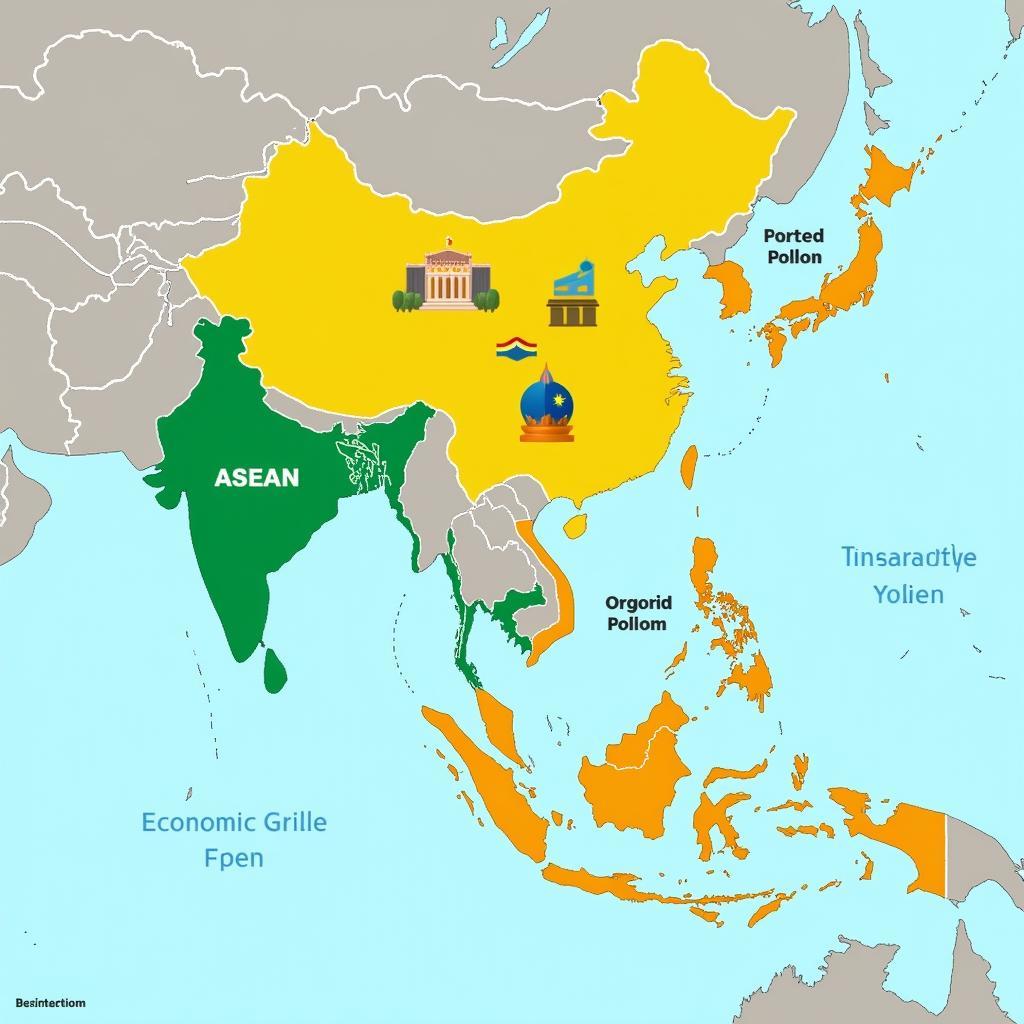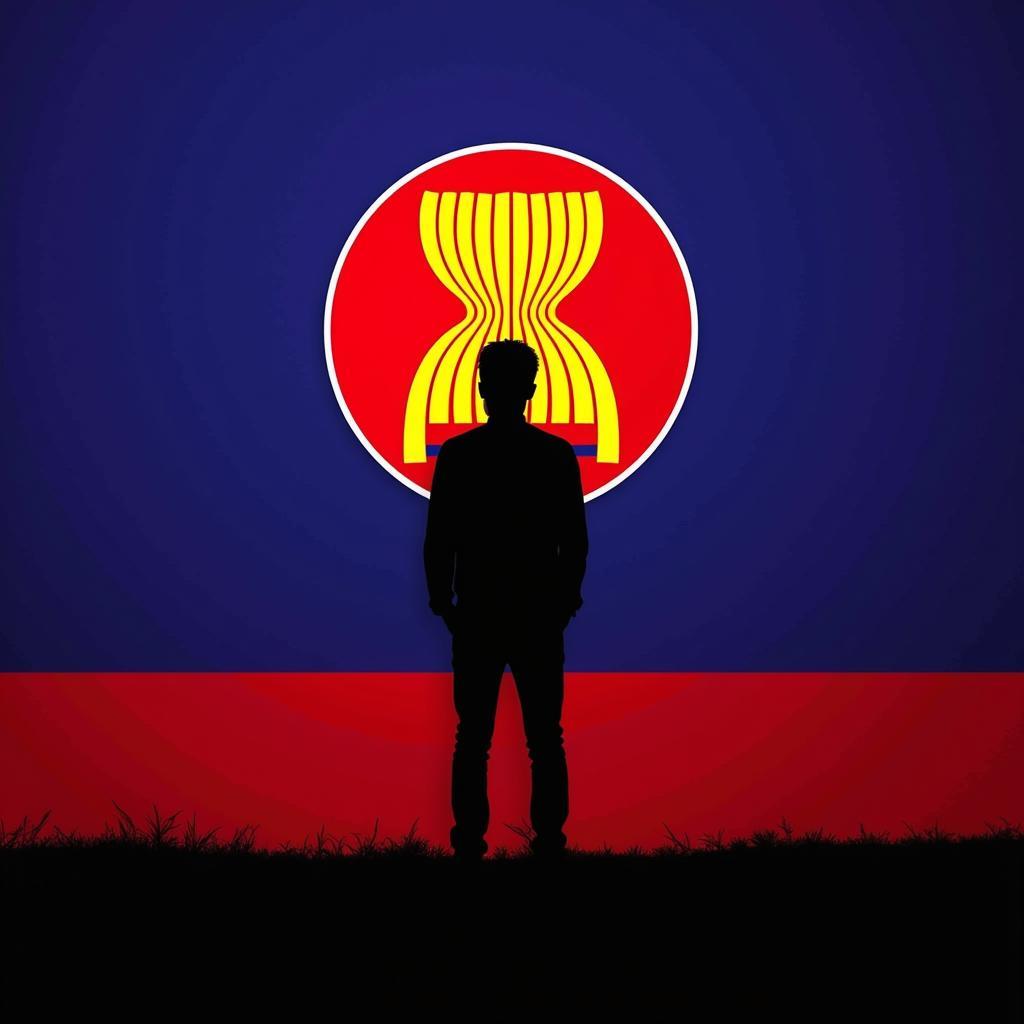The term “ASEAN founder” often sparks curiosity, leading many to search for the individuals who laid the foundation for this influential regional bloc. While ASEAN, the Association of Southeast Asian Nations, wasn’t built by a single visionary, its genesis lies in the collective efforts of five key individuals representing their respective nations. These forward-thinking leaders came together to establish a platform for peace, stability, and cooperation in Southeast Asia.
The Architects of Regional Unity: Delving into the Founding Fathers
On August 8th, 1967, a pivotal moment unfolded in the history of Southeast Asia. Five prominent figures, driven by a shared vision of a unified and prosperous region, signed the ASEAN Declaration in Bangkok, Thailand. This pivotal document marked the birth of ASEAN, forever etching their names as the organization’s founding fathers. Let’s delve into the profiles of these influential figures:
-
Indonesia – Adam Malik: A staunch advocate for Indonesian independence, Malik transitioned into the role of a diplomat, playing a pivotal role in easing tensions during the Indonesia-Malaysia confrontation. His commitment to regional cooperation paved the way for ASEAN’s formation.
-
Malaysia – Tun Abdul Razak: As Malaysia’s second Prime Minister, Razak was instrumental in shaping the nation’s post-independence course. His dedication to regional stability and economic growth was paramount in ASEAN’s founding principles.
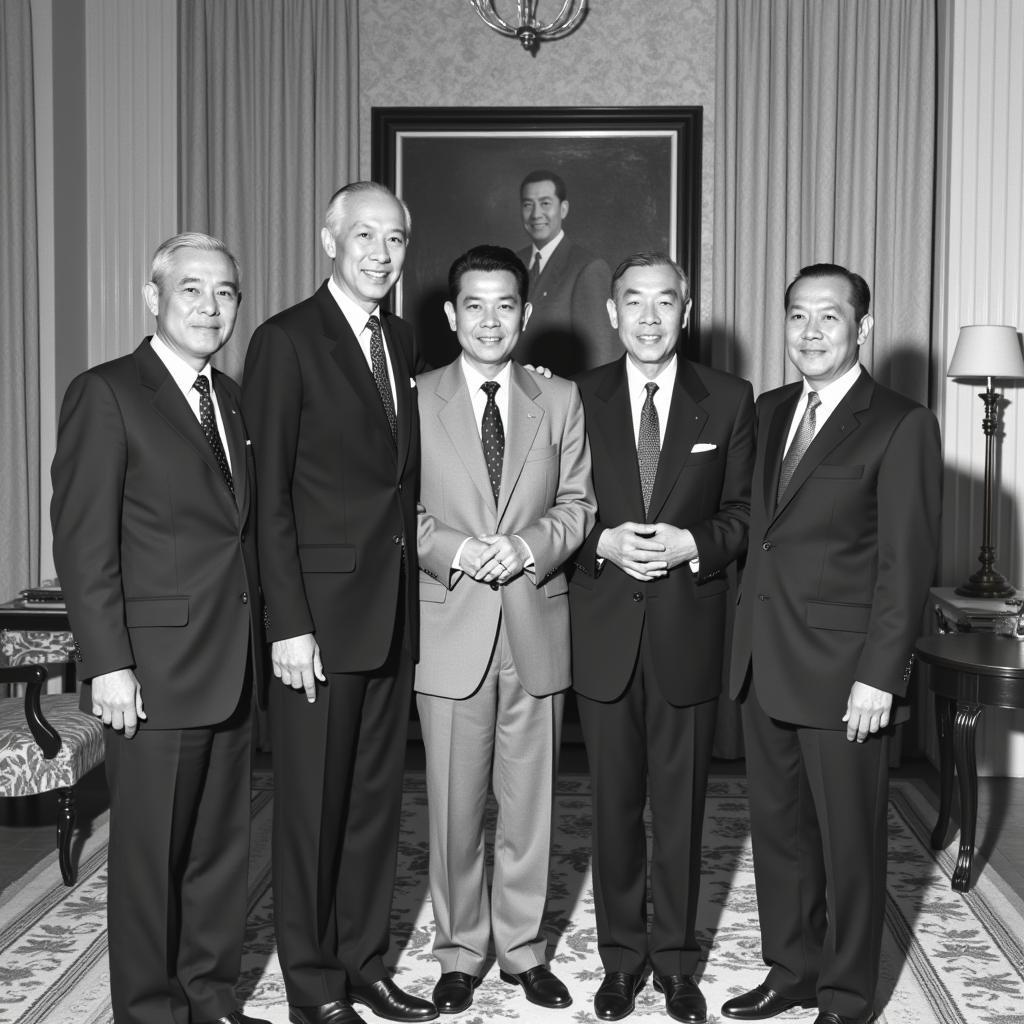 ASEAN Founding Fathers
ASEAN Founding Fathers
-
Philippines – Narciso Ramos: A seasoned diplomat and politician, Ramos served as the Philippines’ Foreign Minister. His commitment to regional security and collaborative diplomacy contributed significantly to the establishment of ASEAN.
-
Singapore – S. Rajaratnam: As Singapore’s Foreign Minister, Rajaratnam played a crucial role in navigating the nation’s foreign policy during its nascent years. His belief in regional solidarity and economic cooperation were instrumental in shaping ASEAN’s direction.
-
Thailand – Thanat Khoman: A prominent figure in Thai politics, Khoman served as the Minister of Foreign Affairs. His advocacy for peaceful coexistence and regional partnership laid the groundwork for ASEAN’s founding.
ASEAN’s Legacy: A Testament to Shared Vision
The vision of these five founding fathers extended beyond geographical boundaries. They recognized the importance of fostering unity and cooperation amongst Southeast Asian nations, not just for the region’s well-being but also for its standing in the global arena.
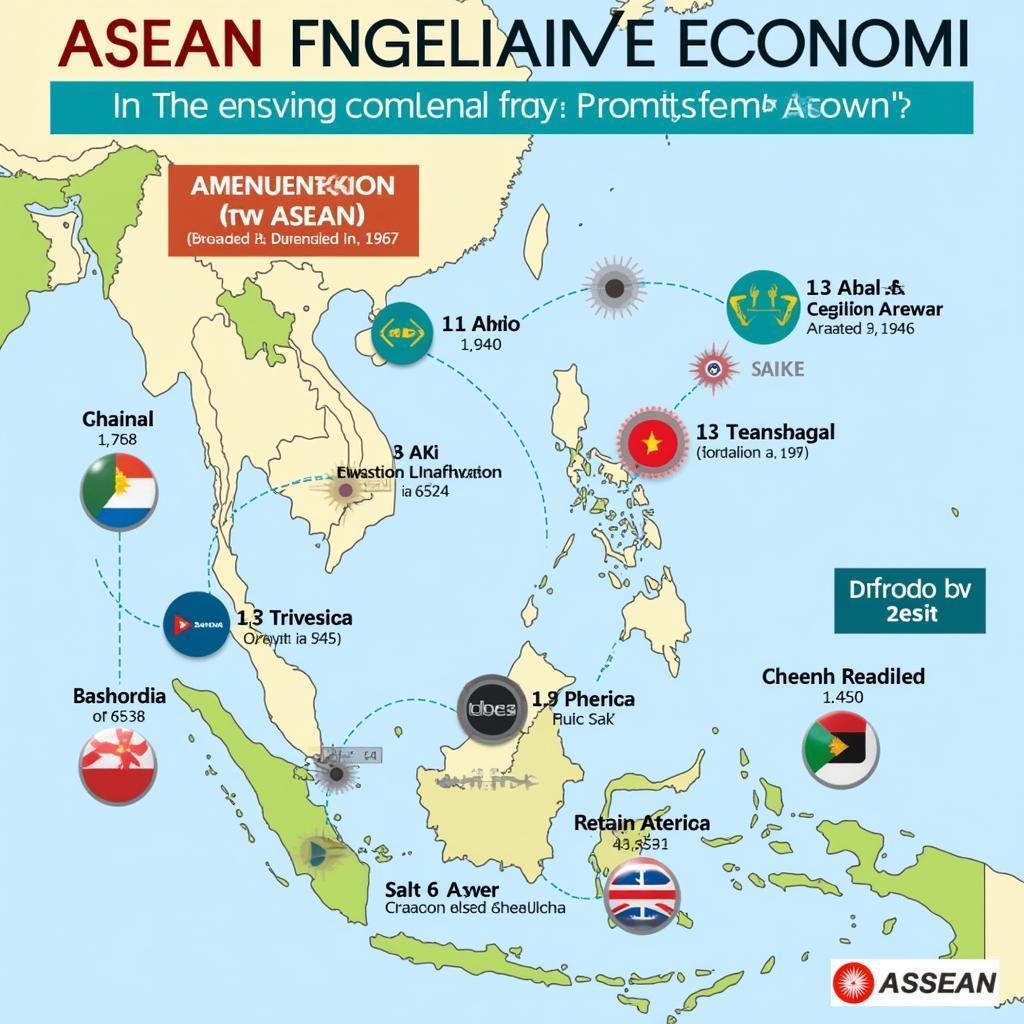 The Impact of ASEAN
The Impact of ASEAN
ASEAN’s journey from a five-nation bloc to a ten-member organization reflects its enduring relevance and appeal. The organization’s commitment to economic integration, political cooperation, and socio-cultural exchange has yielded tangible benefits, solidifying its position as a driving force in the global landscape.
Looking Ahead: ASEAN’s Continued Relevance
The legacy of the “ASEAN founders” extends beyond their historical roles. Their vision continues to guide the organization as it navigates contemporary challenges, including economic uncertainties, geopolitical dynamics, and emerging security concerns.
ASEAN’s ability to adapt and evolve while upholding its core principles is a testament to the enduring strength of the foundation laid by its founding fathers. Their emphasis on dialogue, consensus-building, and mutual respect continues to shape the organization’s approach to regional and global issues.
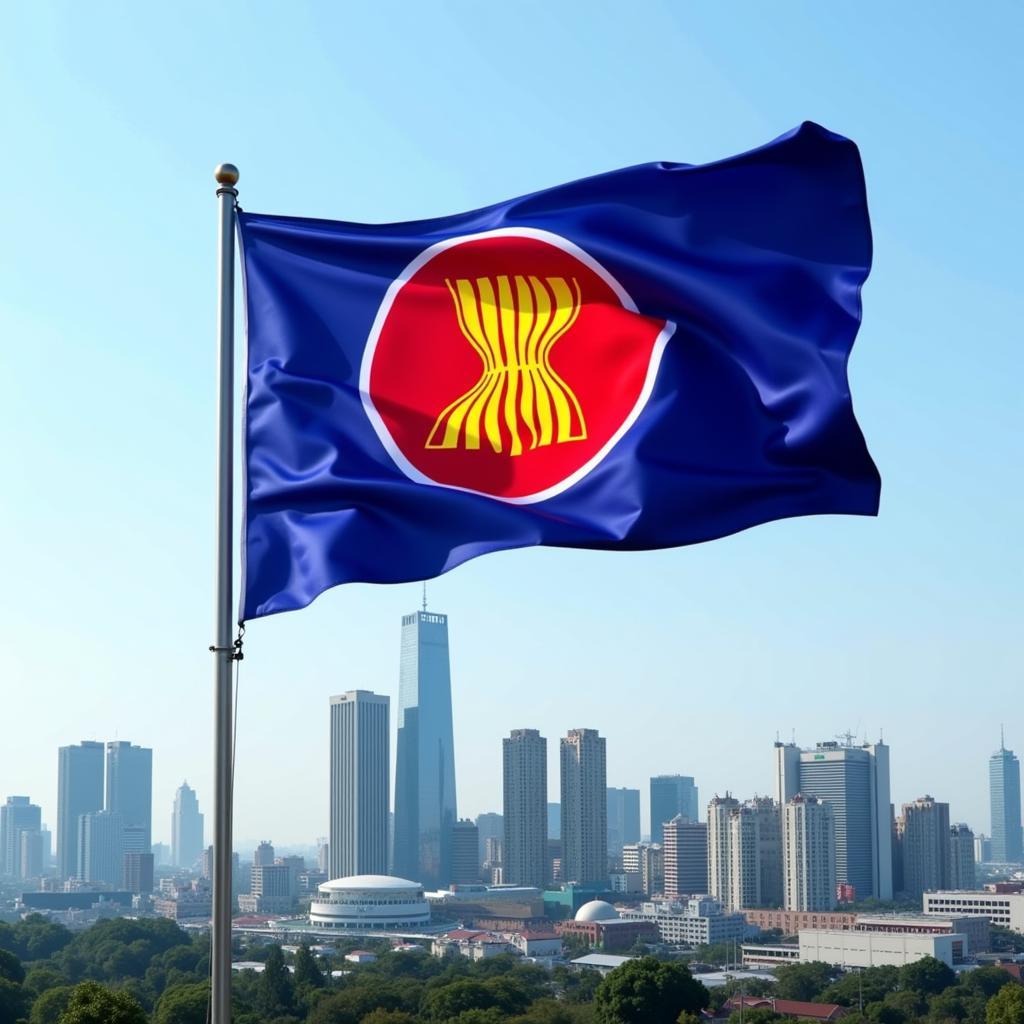 ASEAN's Future
ASEAN's Future
FAQs
1. What were the main goals of the ASEAN founders?
The ASEAN founders aimed to establish a platform for regional peace and stability, promote economic growth, advance social progress, and foster cultural collaboration among Southeast Asian nations.
2. How has ASEAN expanded since its founding?
Initially comprising five members, ASEAN has grown to encompass all ten Southeast Asian countries, including Brunei Darussalam, Cambodia, Laos, Myanmar, and Vietnam.
3. What are some of ASEAN’s key achievements?
ASEAN has facilitated significant economic integration through initiatives like the ASEAN Free Trade Area (AFTA) and played a crucial role in maintaining regional peace and security.
4. What challenges does ASEAN face today?
Contemporary challenges include narrowing development gaps within the region, addressing territorial disputes in the South China Sea, and navigating the complexities of great power rivalry in the region.
5. How does ASEAN’s founding principles remain relevant?
ASEAN’s founding principles of dialogue, consensus, and cooperation continue to guide the organization’s approach to addressing regional issues and engaging with global partners.
Need More Information on ASEAN?
- Learn about the ASEAN Education Foundation certificates: ASE Education Foundation certificates
- Discover more about ASE certification: ASE certification number Florida
For any inquiries or assistance, please reach out to us at:
Phone Number: 0369020373
Email: aseanmediadirectory@gmail.com
Address: Thon Ngoc Lien, Hiep Hoa, Bac Giang, Vietnam
Our dedicated customer support team is available 24/7 to assist you.
